Abarth 500 595 695 vs Dacia Jogger – Which model is better for everyday use?
Everyday use, family trips or long-distance drives – here’s where the differences show.
Discover whether Abarth 500 595 695 or Dacia Jogger fits your lifestyle better.
Costs and Efficiency:
Price and efficiency are key factors when choosing a car – and this is often where the real differences emerge.
Dacia Jogger has a decisively advantage in terms of price – it starts at 15400 £, while the Abarth 500 595 695 costs 32600 £. That’s a price difference of around 17142 £.
Engine and Performance:
Under the bonnet, it becomes clear which model is tuned for sportiness and which one takes the lead when you hit the accelerator.
When it comes to engine power, the Abarth 500 595 695 has a hardly perceptible edge – offering 155 HP compared to 140 HP. That’s roughly 15 HP more horsepower.
In acceleration from 0 to 100 km/h, the Abarth 500 595 695 is clearly quicker – completing the sprint in 7 s, while the Dacia Jogger takes 9.80 s. That’s about 2.80 s faster.
In terms of top speed, the Dacia Jogger performs a bit better – reaching 174 km/h, while the Abarth 500 595 695 tops out at 155 km/h. The difference is around 19 km/h.
There’s also a difference in torque: Abarth 500 595 695 pulls slightly stronger with 235 Nm compared to 200 Nm. That’s about 35 Nm difference.
Space and Everyday Use:
Beyond pure performance, interior space and usability matter most in daily life. This is where you see which car is more practical and versatile.
Seats: Dacia Jogger offers convincingly more seating capacity – 7 vs 4.
In curb weight, Dacia Jogger is a bit lighter – 1251 kg compared to 1410 kg. The difference is around 159 kg.
In terms of boot space, the Dacia Jogger offers significantly more room – 607 L compared to 185 L. That’s a difference of about 422 L.
In maximum load capacity, the Dacia Jogger performs convincingly better – up to 1819 L, which is about 1269 L more than the Abarth 500 595 695.
When it comes to payload, Dacia Jogger clearly perceptible takes the win – 582 kg compared to 385 kg. That’s a difference of about 197 kg.
Who wins the race?
The Dacia Jogger proves to be leaves the rival little chance and therefore becomes our DriveDuel Champion!
Dacia Jogger is the better all-rounder in this comparison.
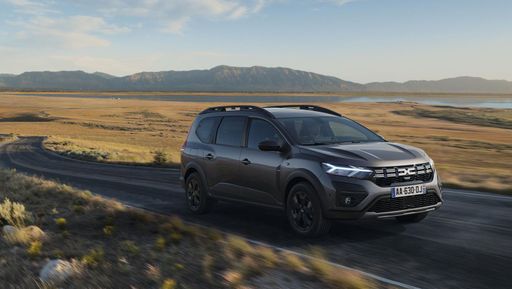 @ Dacia / Renault Group Media
@ Dacia / Renault Group Media
Dacia Jogger
Abarth 500 595 695
The Abarth 500, particularly in its 595 and 695 renditions, captures the spirit of Italian motoring with its compact yet aggressive design. Known for its lively performance and distinctive styling, this little powerhouse is a joy to drive, offering an engaging experience that appeals to enthusiasts. With its rich motorsport heritage, the Abarth 500 embodies the essence of fun and excitement on both the streets and the race track.
details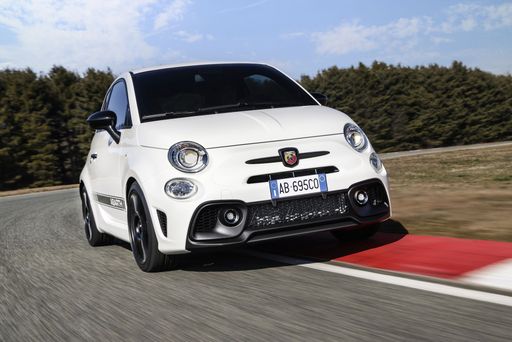 @ Abarth / Stellantis Media
@ Abarth / Stellantis Media
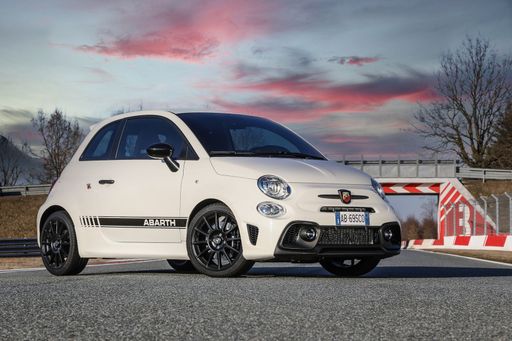 @ Abarth / Stellantis Media
@ Abarth / Stellantis Media
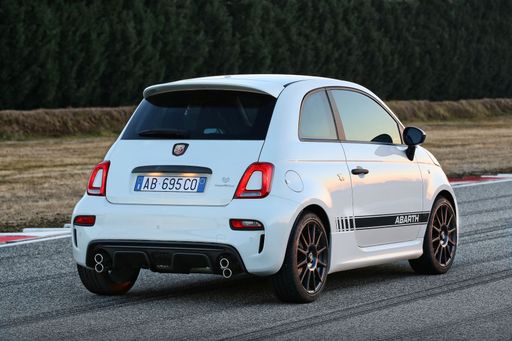 @ Abarth / Stellantis Media
@ Abarth / Stellantis Media
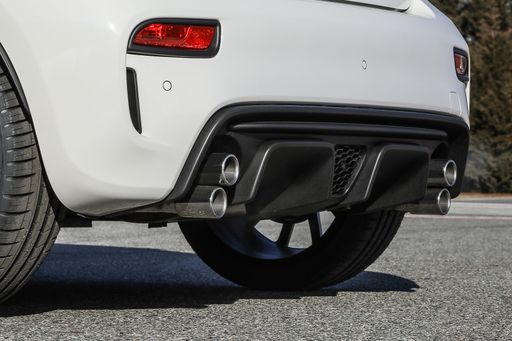 @ Abarth / Stellantis Media
@ Abarth / Stellantis Media
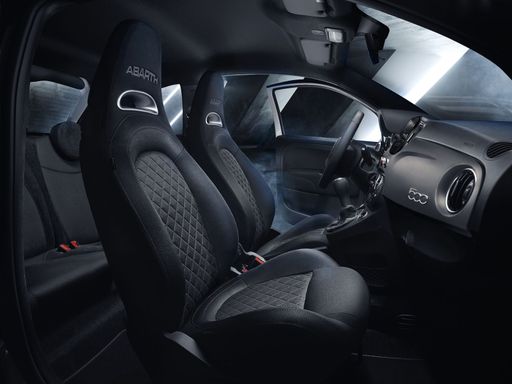 @ Abarth / Stellantis Media
@ Abarth / Stellantis Media
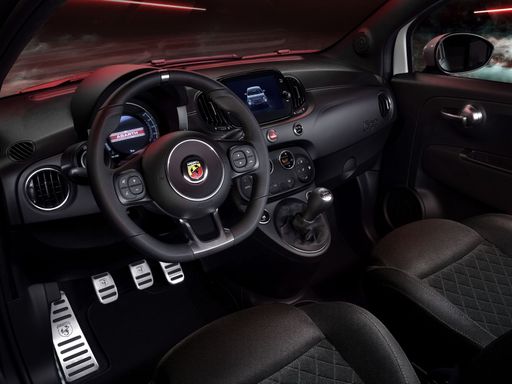 @ Abarth / Stellantis Media
@ Abarth / Stellantis Media
Dacia Jogger
The Dacia Jogger offers a spacious and versatile interior, making it an excellent choice for families seeking practicality and comfort. Its design combines the robustness of an SUV with the functionality of an estate, providing a reliable option for various driving needs. With a focus on affordability, the Jogger ensures that essential features are accessible without compromising on quality.
details @ Dacia / Renault Group Media
@ Dacia / Renault Group Media
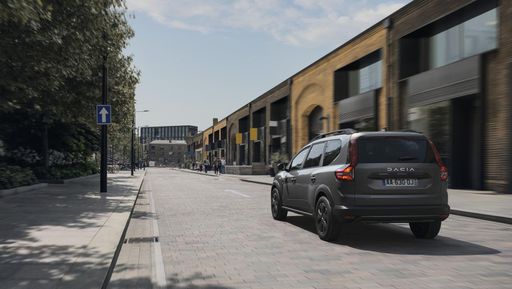 @ Dacia / Renault Group Media
@ Dacia / Renault Group Media
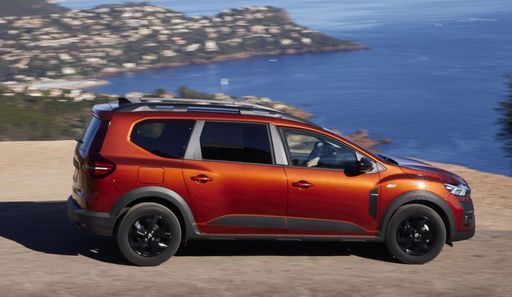 @ Dacia / Renault Group Media
@ Dacia / Renault Group Media
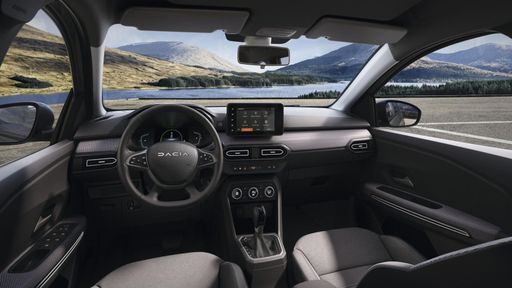 @ Dacia / Renault Group Media
@ Dacia / Renault Group Media
 @ Abarth / Stellantis Media
@ Abarth / Stellantis Media
|
 @ Dacia / Renault Group Media
@ Dacia / Renault Group Media
|
|
|
|
Costs and Consumption |
|
|---|---|
|
Price
32600 - 39400 £
|
Price
15400 - 23400 £
|
|
Consumption L/100km
-
|
Consumption L/100km
4.7 - 7.8 L
|
|
Consumption kWh/100km
17.1 - 18.8 kWh
|
Consumption kWh/100km
-
|
|
Electric Range
242 - 265 km
|
Electric Range
-
|
|
Battery Capacity
37.80 kWh
|
Battery Capacity
0.60 kWh
|
|
co2
0 g/km
|
co2
105 - 137 g/km
|
|
Fuel tank capacity
-
|
Fuel tank capacity
40 - 50 L
|
Dimensions and Body |
|
|---|---|
|
Body Type
Hatchback
|
Body Type
MPV
|
|
Seats
4
|
Seats
5 - 7
|
|
Doors
3
|
Doors
5
|
|
Curb weight
1410 - 1435 kg
|
Curb weight
1251 - 1460 kg
|
|
Trunk capacity
185 L
|
Trunk capacity
160 - 607 L
|
|
Length
3673 mm
|
Length
4547 mm
|
|
Width
1682 mm
|
Width
1784 mm
|
|
Height
1518 mm
|
Height
1674 mm
|
|
Max trunk capacity
550 L
|
Max trunk capacity
1807 - 1819 L
|
|
Payload
370 - 385 kg
|
Payload
393 - 582 kg
|
Engine and Performance |
|
|---|---|
|
Engine Type
Electric
|
Engine Type
Full Hybrid, LPG, Petrol
|
|
Transmission
Automatic
|
Transmission
Automatic, Manuel
|
|
Transmission Detail
-
|
Transmission Detail
Automatic Gearbox, Manual Gearbox
|
|
Drive Type
Front-Wheel Drive
|
Drive Type
Front-Wheel Drive
|
|
Power HP
155 HP
|
Power HP
91 - 140 HP
|
|
Acceleration 0-100km/h
7 s
|
Acceleration 0-100km/h
9.8 - 13.2 s
|
|
Max Speed
155 km/h
|
Max Speed
167 - 174 km/h
|
|
Torque
235 Nm
|
Torque
160 - 200 Nm
|
|
Number of Cylinders
-
|
Number of Cylinders
3 - 4
|
|
Power kW
114 kW
|
Power kW
67 - 103 kW
|
|
Engine capacity
-
|
Engine capacity
999 - 1598 cm3
|
General |
|
|---|---|
|
Model Year
2023
|
Model Year
2024 - 2025
|
|
CO2 Efficiency Class
A
|
CO2 Efficiency Class
C, D
|
|
Brand
Abarth
|
Brand
Dacia
|
Is the Abarth 500 595 695 offered with different drivetrains?
The Abarth 500 595 695 is offered with Front-Wheel Drive.
The prices and data displayed are estimates based on German list prices and may vary by country. This information is not legally binding.
